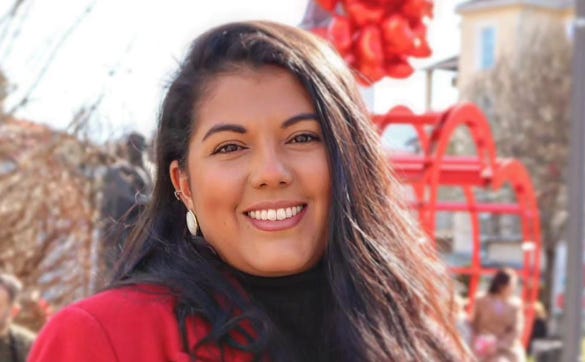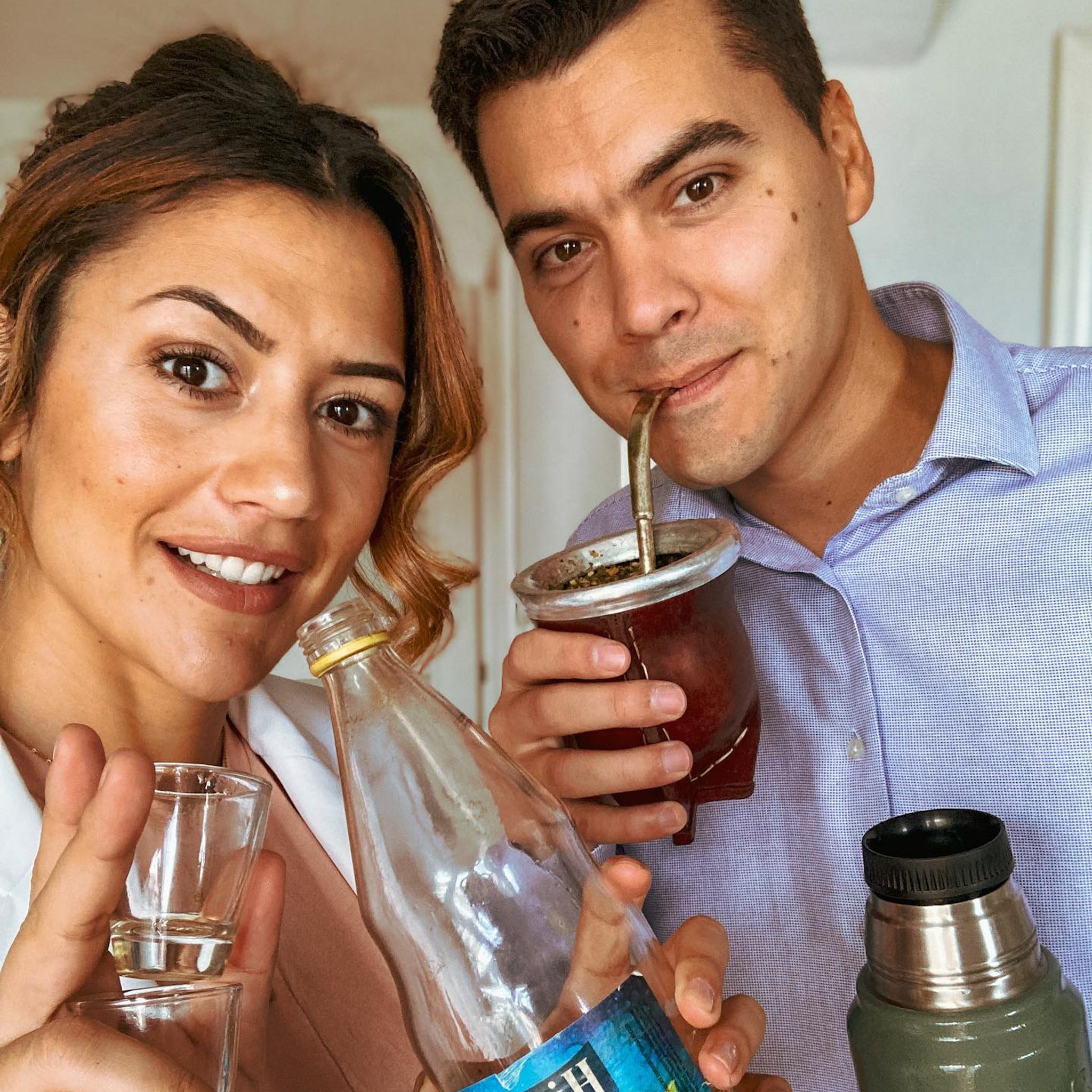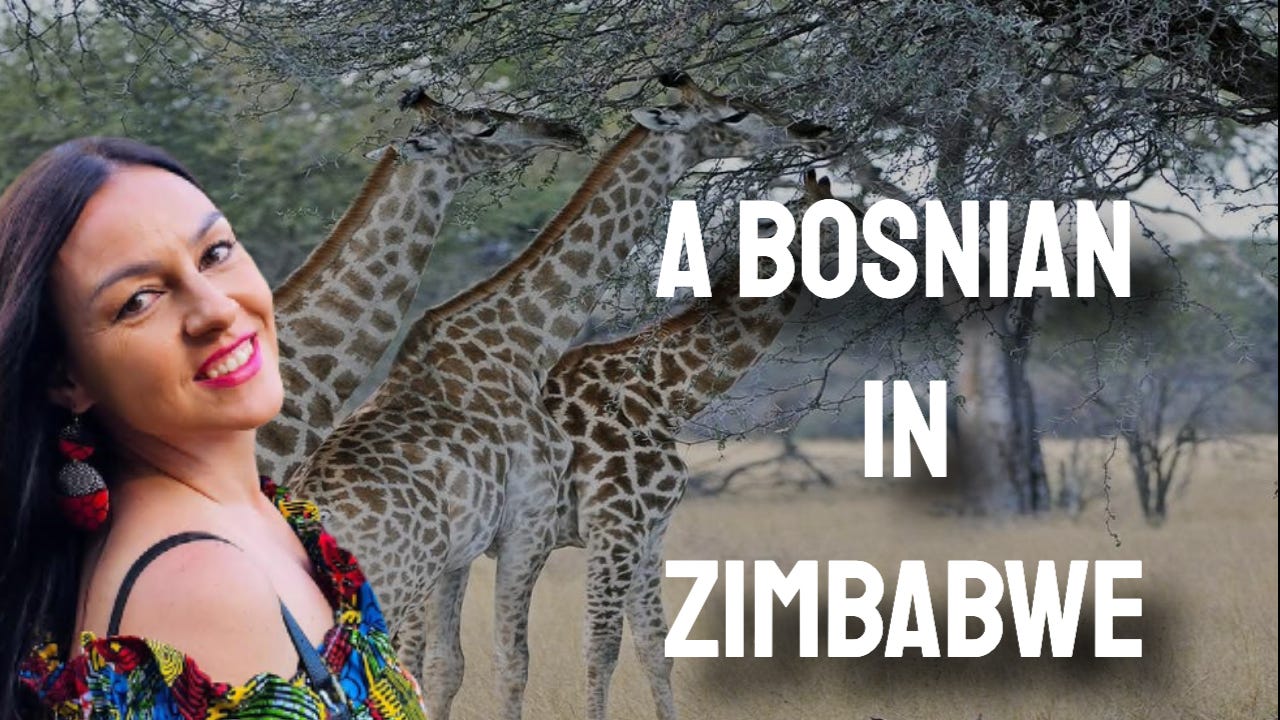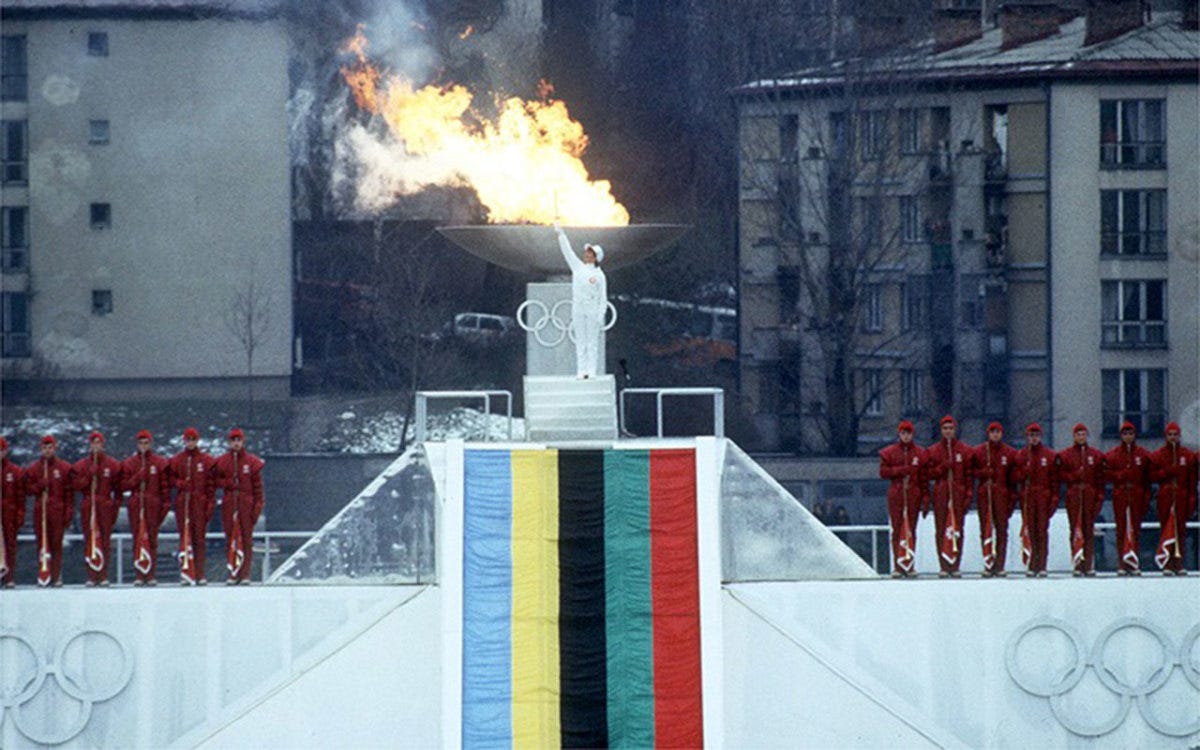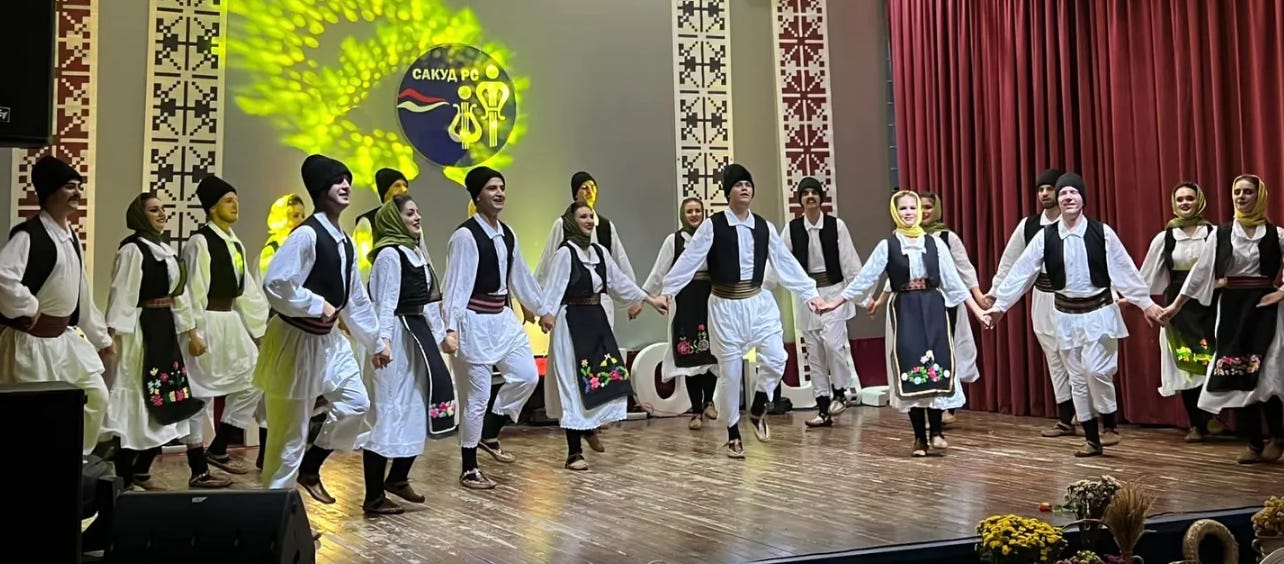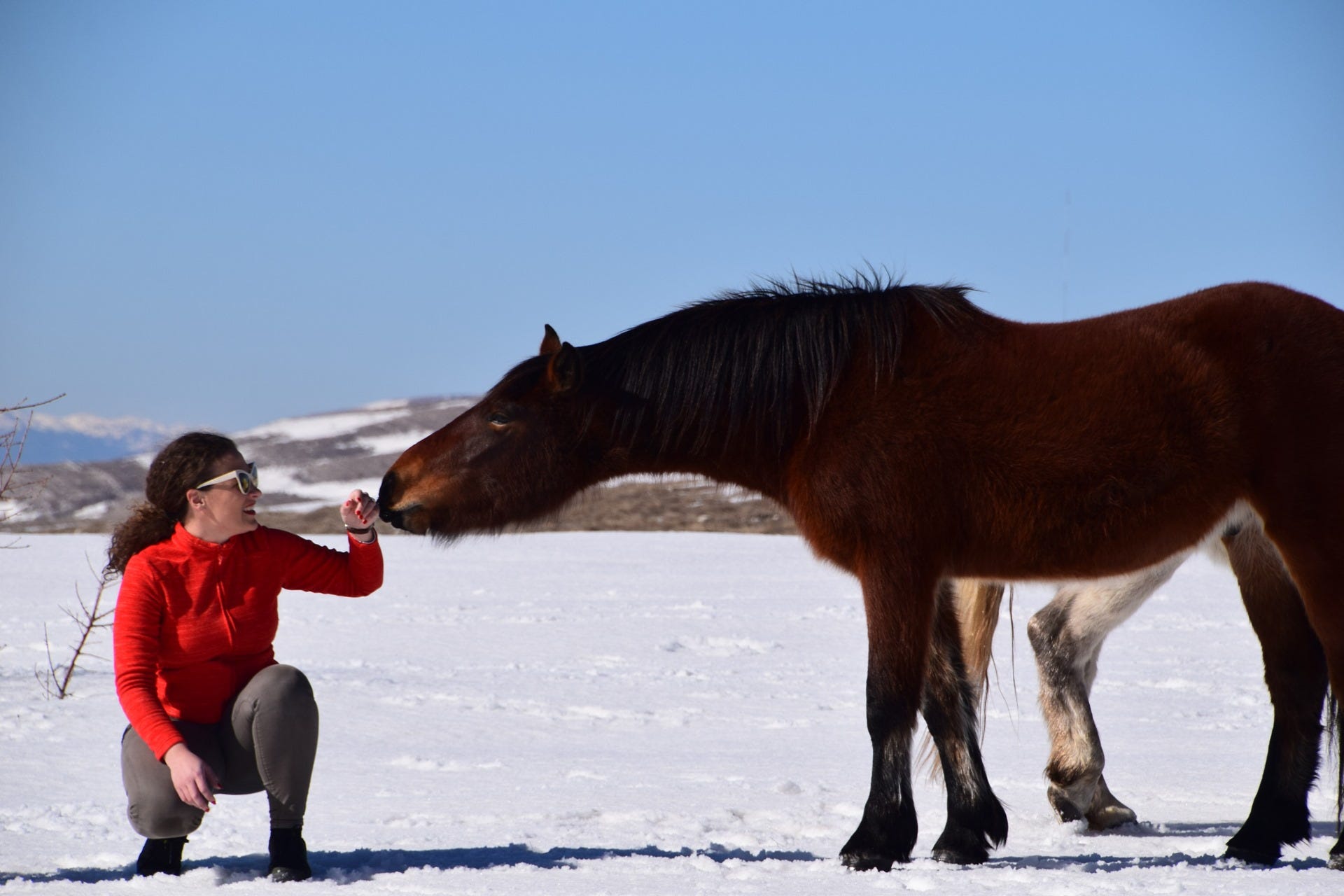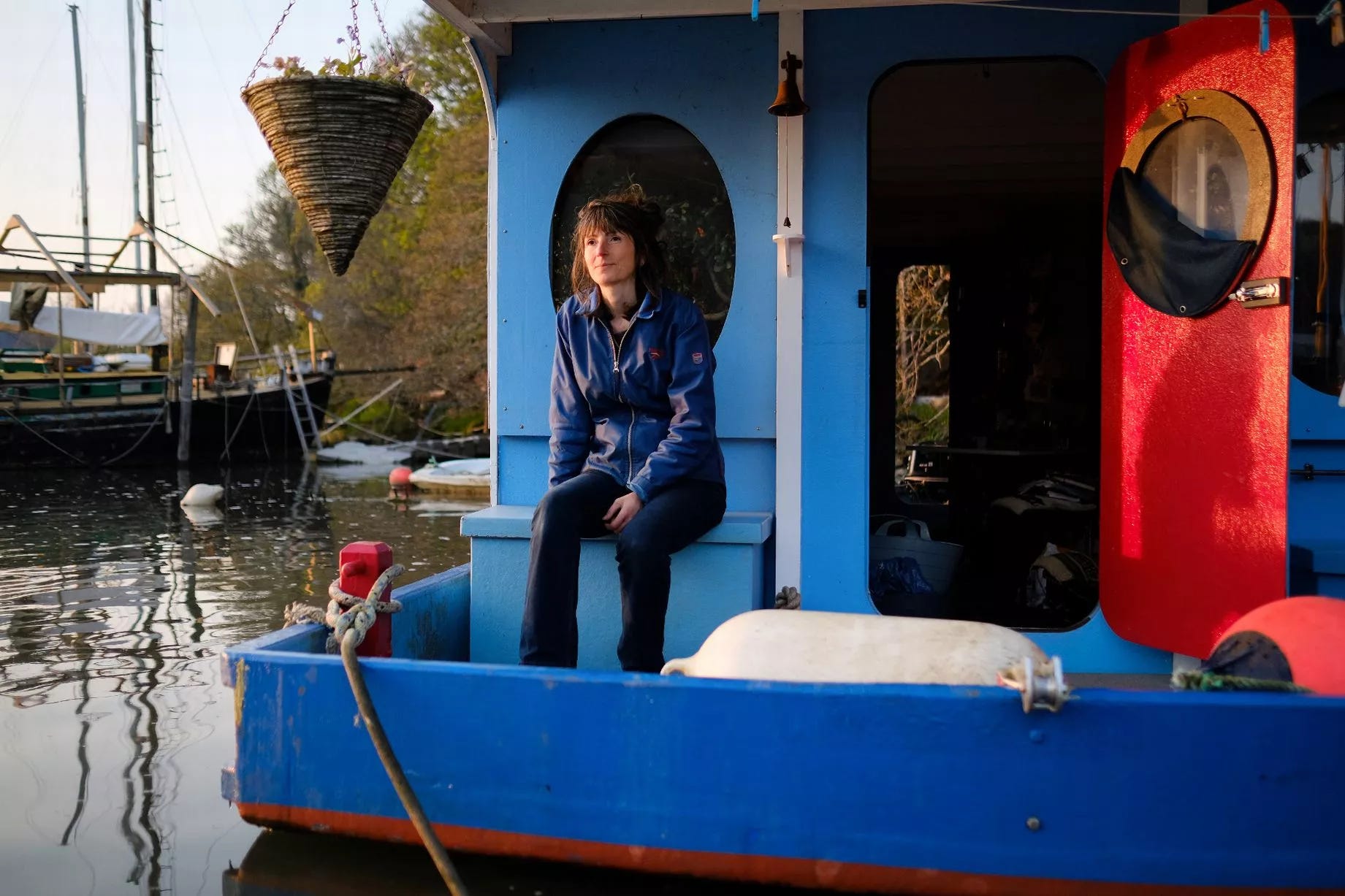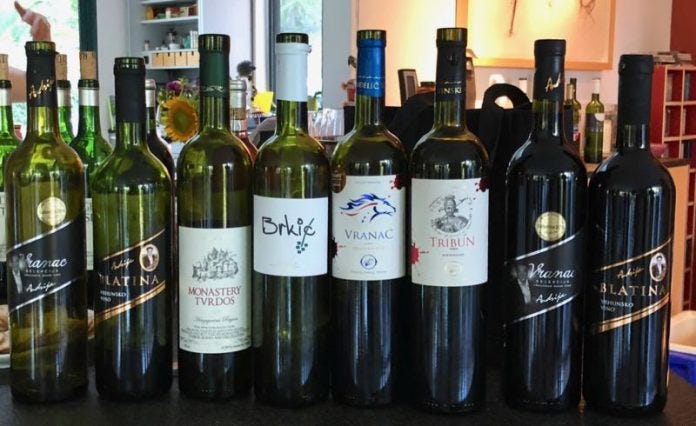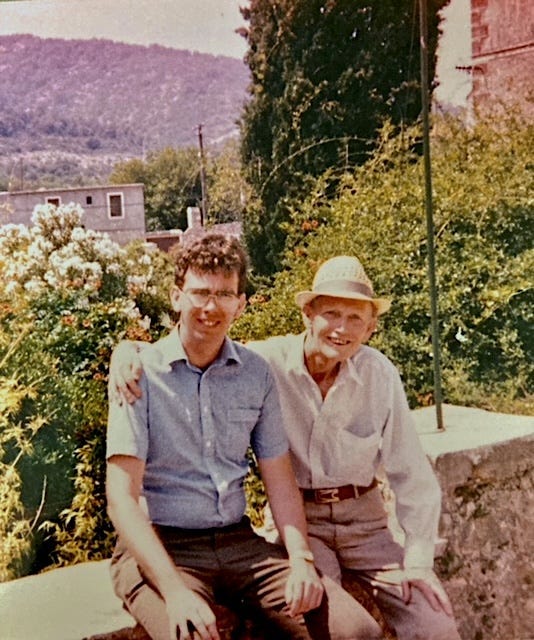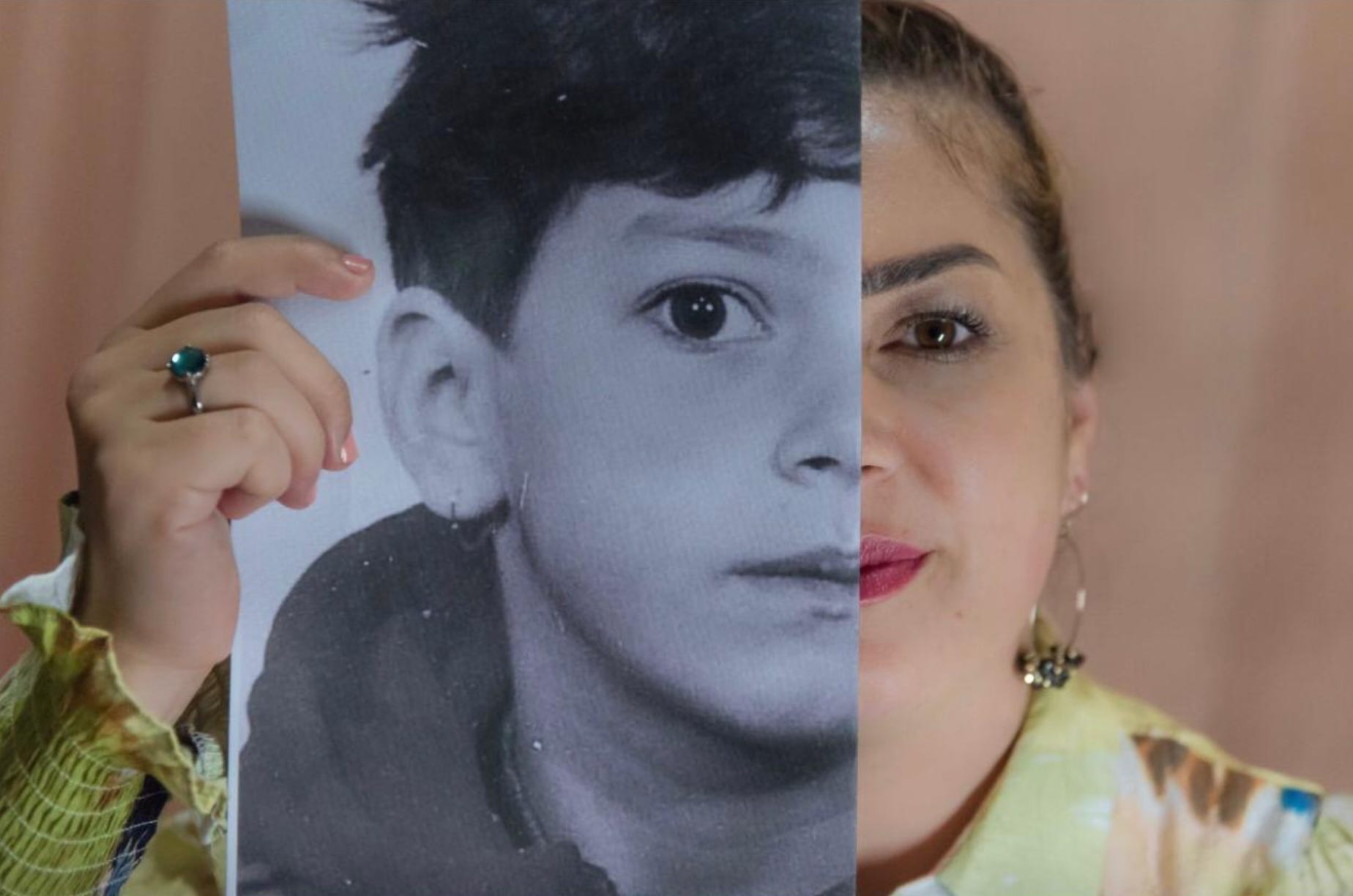Discover 🎙️ An Englishman in the Balkans Podcast 🎧
🎙️ An Englishman in the Balkans Podcast 🎧

99 Episodes
Reverse
The script is an interview with Mile Mićić about his project Bosana, a fantasy world inspired by Bosnia. He discusses his inspirations, cultural heritage, struggles in creation, and the value of financial support through platforms like Patreon. Mile shares his hopes of connecting people through storytelling and invites audiences to join the Bosana community.Exploring Bosnia, Andalusia, and the Fantasy World of Bosana with Mile MićićIn this podcast episode, the host shares an insightful conversation with Mile Mićić, a native of Bosnia Herzegovina who is currently residing in Andalusia, Spain. Mićić discusses his deep connection to his Bosnian roots, his move to Spain influenced by love, and his profound appreciation for cultural heritage. He elaborates on the cultural similarities and differences between Bosnia and Andalusia, particularly focusing on their unique approaches to food and hospitality. The episode also delves into Mićić's creation, Bosana, a fantasy world that mirrors the complexities, culture, and conflicts of Bosnia. Mićić explains how Bosana serves as a canvas for his experiences and observations, aiming to connect with readers through its characters and stories. The conversation highlights the importance of storytelling, cultural preservation, and the challenges and rewards of creative work. Mićić expresses his hopes for Bosana to inspire creativity and resilience among its audience.00:00 Welcome to the Journey: Exploring New Worlds and Cultures00:38 Meet Mile Mićić: A Bosnian's Tale of Moving to Spain03:16 Cultural Connections: From Bosnia to Andalusia06:52 Language and Integration: Navigating New Linguistic Landscapes10:00 Creating Bosana: A Fantasy World Inspired by Real-Life Experiences12:08 The Art of Storytelling and Character Creation23:03 Facing Challenges and Embracing Support in Creative Projects29:16 Bosana's Future: Dreams, Aspirations, and Community Engagement35:18 A Personal Invitation: Joining the World of Bosana Get full access to Coffee and Rakija at www.anenglishmaninthebalkans.com/subscribe
This episode of the podcast features an in-depth conversation with Arianna, a vibrant Latin woman who has made Banja Luka, Bosnia and Herzegovina, her home.Arianna shares her experiences of moving for love, transitioning from a glamorous life aboard cruise ships to setting roots in a new country.With discussions ranging from cultural shocks, embracing new traditions, to overcoming personal challenges, Arianna's tale is a heartwarming testament to adaptability, resilience, and finding one's place in the world.The conversation also touches on her innovative project, "Get Chatty", aimed at helping people improve their English through conversational practice.Find Out About “Get Chatty” ⬇️Watch the Podcast ⬇️Please also do share this episode and maybe leave a 5 start review on the podcast platform you listened to this on.Stay tuned for more exciting stories and adventures from the Englishman in the Balkans podcast!Thank you for being a part of our podcasting community, and we look forward to bringing you more exciting content in the future.Don't forget to like, subscribe, and share this podcast.Stay tuned for more stories and adventures from the Englishman in the Balkans podcast!Thank you for being a part of our podcasting community, and we look forward to bringing you more exciting content in the future.And FinallyDon’t forget that you can read back editions of the newsletter, listen to previous podcasts (we have quite an archive now), or catch other content, all this is available on the web interface, just like a regular blog.Coffee and Rakija is a reader-supported publication. To become a Supporter consider becoming a paid subscriber.Oh, and please share the newsletter with friends, relatives and colleagues using the button below.Tamara and I appreciate your faithful readership, your comments, and your generosity! Until our next post.THANKS SO MUCH ❤️ Get full access to Coffee and Rakija at www.anenglishmaninthebalkans.com/subscribe
In this podcast I talk to my Argentinian friend, Denise.We chat about our experiences as expats and immigrants living in Bosnia and Herzegovina. Denise shares her experiences with the language barrier, the quality of life, and the challenges and joys of raising a child in a foreign land. She also delves into cultural differences, food, work, and the impact of social media in shaping perceptions about the Balkans. Get full access to Coffee and Rakija at www.anenglishmaninthebalkans.com/subscribe
In This Episode.In this episode of the podcast I talk to Ramajana Mabita, originally from Bosnia and Herzegovina but presently living in Harare in Zimbabwe.I find out what, if any, similarities there are between the two countries, Ramajana’s culture shocks, her love of Zimbabwean fashion and also hear one of her favourite music tracks from this African nation, plus much more.🏴 An Englishman in the Balkans 🇧🇦 is a reader-supported publication. To receive new posts and support my work, consider becoming a paid subscriber.Get full access to 🏴 An Englishman in the Balkans 🇧🇦 at www.anenglishmaninthebalkans.com/subscribe Get full access to Coffee and Rakija at www.anenglishmaninthebalkans.com/subscribe
Hello, I’m David and I write about my life and adventures in Bosnia and Herzegovina. Subscribe for free to enjoy occasional posts, podcasts and vlogs from this much misunderstood heart shaped country in the western Balkans. The National Anthem of the Socialist Federated Republic of Yugoslavia - “Hej Slaveni”The Olympic Games in Sarajevo in February 1984, brought together 1,272 athletes from 49 countries as well as the most eminent figures from the world's sporting, cultural, and socio-political life in one place.The 14th Winter Olympic Games were held in Sarajevo from February 8-19, 1984, and marked a significant milestone in the history of the city and the entire country of what was then The Socialist Federated Republic of Yugoslavia (SFRY). What started as a dream eventually became a reality through determination, hard work, and unwavering enthusiasm.The story of the Sarajevo Winter Olympics began some 20 years before in the late 1960s and early 1970s, when discussions about the development of skiing and winter tourism in the Socialist Republic of Bosnia and Herzegovina (one of the 6 republics that made up Yugoslavia) took place. It was during these conversations that the potential of Sarajevo to host the Games was recognised. However, the road to candidacy was not going to be without its challenges.A significant turning point came in April 1971 when the first analyses of the social justification and possibilities for organising the Winter Olympic Games in Sarajevo were completed. Despite not being officially presented to the public at that time, it laid the foundation for creating an atmosphere of trust and motivation to move forward with the ambitious goal of hosting the Games.The journey to secure the Games continued with the formation of a Preparatory Committee, committed to showcasing the potential of Sarajevo as a host. With the support and consent of various authorities, including the Federal Executive Council, the candidacy was officially announced to the public on October 14, 1977.The road to securing the Winter Olympics for Sarajevo was not easy. Several other countries, including France, Japan, Sweden, and Czechoslovakia, also vied for the opportunity to host the "White Olympiad." Many believed that Sarajevo and Yugoslavia had little chance of success. However, the creators of the Olympic project remained undeterred. Their belief in their vision led them to continue working tirelessly towards their goal.Finally, on January 3, 1978, the candidacy of Sarajevo arrived at the International Olympic Committee office in Lausanne. Months of inspections and evaluations followed, with international experts assessing the city's capabilities and evaluating the promises made. The choice of Sarajevo to host the XIV Olympic Games was announced on May 18th the following year, during the 80th session of the International Olympic Committee (IOC) in Athens. The city's opponents were the Japanese city of Sapporo and the Swedish city of Gothenburg. After two rounds of voting, Sarajevo won the organisation by the majority of votes.With the honour of hosting the Games, Sarajevo became a bustling construction site. Over the years leading up to the event, magnificent sporting facilities sprung up: the "Zetra" complex, bobsleigh and sledding tracks, ski jumps, halls, "white tracks," cable cars, hotels, the Olympic Village, and a journalist's village with 2,640 apartments, as well as roads in the direction of the mountains, and 28 winter sports centres in Bosnia and Herzegovina.The completion of these facilities, coupled with the organisational structures put in place, ensured that Sarajevo was ready to welcome the world on February 8, 1984.The total cost was 141,647,000 dollars, and were completed with a surplus of 12,000,000 dollars. It was the first Olympic Games to end with a surplus. All the previous ones had debts in their wake, and many host cities and countries had difficulty covering the costs.10,450 volunteers, with the participation of thousands and thousands of “pioneers” were involved in the preparation of the Games.February 8th 1984 at precisely 2:30 p.m, fanfare marked the beginning of the opening ceremony of the Winter Olympic Games.On behalf of the organisers, the president of the Organising Committee, Branko Mikulić, greeted the guests, and the president of the IOC, Juan Antonio Samaranch, with the best wishes of the world Olympic family, announcing that the planet "will witness the great Games in Sarajevo and that they will be the best-organised Games in history."The Olympic flame was turned into a big blaze by skater Sanda Dubravčić, and the Olympic oath was taken on behalf of all the participants by the ace of the white tracks, Bojan Križaj, who forgot the words of the Olympic oath, but which the spectators supported with great applause. Sarajevo, Bosnia and Herzegovina, and Yugoslavia, became, for a short while, the centre of the world.The Sarajevo Games were the first where there were no North Atlantic or Warsaw Pact boycotts. 49 national associations took part, 222 medals were distributed, 2,691 athletes and coaches participated, 640,000 tickets were sold, and 7,825 journalists and 760 newsrooms followed them. All this was watched by about two and a half billion viewers across the world.The competitions showcased remarkable performances by athletes such as Jure Franko, who won a silver medal in the giant slalom, becoming the first Yugoslavian to achieve such a feat at the Winter Olympics.The most successful countries were East Germany (nine gold, nine silver, and six bronze medals) and the USSR (six gold, 10 silver, and nine bronze medals).Great Britain’s Torvill and Dean's Olympic full routine in Sarajevo on Valentine's day '84 ⬇️In 2014, Torvill and Dean returned to Sarajevo to dance the Bolero one more time, celebrating the 30-year anniversary of their Olympics performance. Invited by the mayor of Sarajevo ahead of the Youth Olympic Games in 2017, the event helped raise funds for a permanent ice rink and reminded the world of their efforts to bring back the Olympics to Sarajevo.The SFRY team had 72 members.The story of the 1984 Winter Olympic Games in Sarajevo is one of determination, hard work, and triumph against all odds. From a dream and initial doubts to the successful organisation of the Games and the lasting legacy it left behind, Sarajevo proved that with passion and dedication, anything is possible. The city and its people will forever be remembered for hosting one of the best-organised Winter Olympics in history.About 640 thousand visitors were recorded, and about 328 thousand overnight stays.Yugoslav TV Jingles from February 1984 ⬇️The mascot of Games was Vučko (Wolf), and even today, four decades later, his character evokes the best memories.The legacy of the Games extended beyond individual triumphs, as it provided an opportunity for the development of winter sports in Bosnia and Herzegovina.Juan Antonio Samaranch speech at the Closing Ceremony of Olympic Winter Games in Sarajevo 1984.And Finally ⬇️Please also do share this post it really helps us to grow awareness for Bosnia and Herzegovina.We have a short survey designed to help us improve our Substack. It would be super helpful if you could find under 5 minutes to complete it. Thanks so much in advance.Stay tuned for more exciting stories and adventures from us!Thank you for being a part of our community. Get full access to Coffee and Rakija at www.anenglishmaninthebalkans.com/subscribe
It seems that wherever I go in Bosnia and Herzegovina, traditional skills and cultural activities are slowly disappearing.From making instruments, to dancing and much more, the latest generations of young people, don't seem interested, and that could mean a massive impact on the heritage of not only this misunderstood country but also the wider region.I talk to Nemanja Knežević, to learn a little about the challenges he faces as the director of Banja Luka's biggest traditional dance ensemble.Check out the website of Ensemble Veselin Mašlese. Veselin Mašlese on YouTube.Veselin Mašlese on Instagram.In the interview we mention Efie Derksen, a lady from the Netherlands who is also passionate about protecting local folklore and helping to promote its survival.Check out this Podcast to find out more. And this extremely informative film.If you enjoy the podcast please subscribe/follow and share with a friend!If you would like to support our podcast you can, by maybe buying us a coffee or a sandwich?https://buymeacoffee.com/davidbaileyRead Our Blog at Living in Bosnia and HerzegovinaFacebook Page https://www.facebook.com/lifeinbosniaandherzegovinaInstagram: @life_in_bihAsk us any questions or give a suggestion for a Podcast.Come and visit us and holiday in Bosnia and Herzegovina.E-Mail us at anenglishmaninthebalkans@gmail.comGet full access to 🏴 An Englishman in the Balkans 🇧🇦 at www.anenglishmaninthebalkans.com/subscribe Get full access to Coffee and Rakija at www.anenglishmaninthebalkans.com/subscribe
This episode takes us from the picturesque landscapes of the Lake District in the United Kingdom to the rugged mountains of Bosnia and Herzegovina. I catch up with equine photographer Ruth Chamberlain, who last year (2022), embarked on a remarkable journey to document the captivating lives of the wild horses of Livno.I find out about how Ruth's made this unexpected connection to Bosnia and Herzegovina, fuelled by a chance encounter with a breathtaking photograph that led her on an unforgettable adventure. Ruth's passion for promoting rare and unique equine breeds shines through as she shares her experiences in the UK and abroad, shedding light on the intriguing history and relationships between people and horses.Ruth's journey took her through the Bosnian landscape, where she found out about the enchanting Livno horses and their role in the natural ecosystem, discovered the challenges and successes of preserving these magnificent creatures in their wild habitat, and explored the fascinating parallels between the Bosnian horses and other iconic equine herds around the world.Ruth provides insights into the impact of tourism on the Livno region and the delicate balance between sharing this hidden gem with the world and safeguarding its pristine environment. I talk to Ruth about the importance of responsible tourism and how it can contribute to the preservation of these remarkable wild herds.Find out More about Ruth at:https://ruthonthehoof.com/https://www.instagram.com/ruthonthehoof/"Our wonderful guide Silvija (@livnowildhorses) was fantastic, she showed us the whole area - from mountains to the history of the town. She was very generous and had such amazing knowledge! We encountered such lovely and wonderful people at every turn and they made the trip even more special. What an amazing place"Thank you for being a part of our podcasting community, and we look forward to bringing you more exciting content in the future.You can support my work, by maybe leaving a Tip or by becoming a member of our podcast family at:https://anenglishmaninthebalkanspodcast.com/supportGet full access to 🏴 An Englishman in the Balkans Blog 🇧🇦 at anenglishmaninthebalkans.com Get full access to Coffee and Rakija at www.anenglishmaninthebalkans.com/subscribe
In this episode I get to talk to Biljana Lipić, a resident of Cornwall in the United Kingdom but originally from Sarajevo.Biljana lives on a boat anchored on a Cornish river. I first found out about Biljana from a story that I stumbled across online.I have to admit that I have always had an interest in narrow boating, and living on the water in general, so when I saw that someone from Sarajevo had achieved what was one of my dreams back in the day, I just had to find out more.Please also do share this episode and maybe leave a 5 start review on the podcast platform you listened to this on.Stay tuned for more exciting stories and adventures from the Englishman in the Balkans podcast!Thank you for being a part of our podcasting community, and we look forward to bringing you more exciting content in the future.Don't forget to like, subscribe, and share this podcast.Stay tuned for more stories and adventures from the Englishman in the Balkans podcast!Thank you for being a part of our podcasting community, and we look forward to bringing you more exciting content in the future.And FinallyDon’t forget that you can read back editions of the newsletter, listen to previous podcasts (we have quite an archive now), or catch other content, all this is available on the web interface, just like a regular blog.Oh, and please share the newsletter with friends, relatives and colleagues using the button below.Tamara and I appreciate your faithful readership, your comments, and your generosity! Until our next post.THANKS SO MUCH ❤️ Get full access to Coffee and Rakija at www.anenglishmaninthebalkans.com/subscribe
In this episode I catch up with Vesna Djukić to find out about how she celebrates Serbian Orthodox Christmas in the United Kingdom.With Vesna's Serbian background and David's enthusiasm for embracing different cultures, they delve into topics such as maintaining cultural identity, introducing Serbian customs to British friends, and the challenges of finding authentic ingredients for traditional Serbian dishes.They also share heartwarming stories of celebrating Christmas in Bosnia and Herzegovina and the UK, highlighting the importance of family, self-sufficiency, and the joy of blending different cultural experiences.Please also do share this episode and maybe leave a 5 start review on the podcast platform you listened to this on.Don't forget to like, subscribe, and share this podcast.Watch the Podcast ⬇️Stay tuned for more stories and adventures from the Englishman in the Balkans podcast!Thank you for being a part of our podcasting community, and we look forward to bringing you more exciting content in the future.And FinallyDon’t forget that you can read back editions of the newsletter, listen to previous podcasts (we have quite an archive now), or catch other content, all this is available on the web interface, just like a regular blog.Oh, and please share the newsletter with friends, relatives and colleagues using the button below.Tamara and I appreciate your faithful readership, your comments, and your generosity! Until our next post.THANKS SO MUCH ❤️ Get full access to Coffee and Rakija at www.anenglishmaninthebalkans.com/subscribe
In this episode I chat with Bela Dominković, a Swiss wine expert now residing in Bosnia and Herzegovina. We talk about the unique wine culture of Bosnia and Herzegovina, the country's potential for wine tourism, the unique characteristics of Bosnian wines, and the challenges faced by local winemakers. Bela, an experienced sommelier and food & wine pairing expert, shares her knowledge about the local wine scene and her ambition for Bosnia and Herzegovina to become recognised as a quality boutique wine area on the global stage.00:00 Introduction and Guest Introduction00:44 Getting to Know Bela Dominković02:33 Bela's Journey into Wine Expertise04:41 Bela's Experience in France05:49 Exploring Bosnian Wines09:05 Comparing Northern and Southern Bosnian Wines11:05 Challenges Facing Bosnian Winemakers15:37 Wine's Role in Bosnian Culture19:50 The State of Wine Tourism in Bosnia24:37 Bela's Recommendations for Bosnian Wines27:23 Bela's Dream for Bosnian Wine28:07 Conclusion and Farewell.Please also do share this episode and maybe leave a 5 start review on the podcast platform you listened to this on. Stay tuned for more exciting stories and adventures from the Englishman in the Balkans podcast!Thank you for being a part of our podcasting community, and we look forward to bringing you more exciting content in the future.You can support my work, by maybe leaving a Tip or by becoming a member of our podcast family at: https://anenglishmaninthebalkanspodcast.com/supportGet full access to 🏴 An Englishman in the Balkans Blog 🇧🇦 at https://www.anenglishmaninthebalkans.com/ Get full access to Coffee and Rakija at www.anenglishmaninthebalkans.com/subscribe
This episode is about David's adventure to Travnik, a charming town in central Bosnia and Herzegovina. With the assistance of local guide Ben, David unveils the rich history, mouth-watering cuisine, captivating architecture and stunning nature of Travnik. Highlighting the efforts of passionate locals, this episode explores Travnik's potential as a top tourist destination. Discover unique experiences such as sheep shearing, taking a swing on an Instagram-famous spot, cherishing the view from a medieval fortress and grinding coffee in a traditional mill. David reveals the magic of Travnik by sharing interesting details, local tips and anecdotal insight. This episode concludes with David's thoughts on his journey, the people met, and the culinary delights tasted.00:00 Introduction and Journey to Travnik00:59 Travel Tips for Bus Journey in Bosnia01:46 Experiencing the Scenic Bus Route03:53 Arrival in Travnik and Meeting with Ben05:16 Exploring the Natural Wonders of Travnik06:01 Buying Vlasic Cheese and Witnessing Sheep Shearing08:05 Guided Tour of Travnik13:59 Reflections and Departure from Travnik17:07 Conclusion and Looking Forward to Future TravelsPlease also do share this episode and maybe leave a 5 start review on the podcast platform you listened to this on. Stay tuned for more exciting stories and adventures from the Englishman in the Balkans podcast!Thank you for being a part of our podcasting community, and we look forward to bringing you more exciting content in the future.You can support my work, by maybe leaving a Tip or by becoming a member of our podcast family at: https://anenglishmaninthebalkanspodcast.com/supportGet full access to 🏴 An Englishman in the Balkans Blog 🇧🇦 at https://www.anenglishmaninthebalkans.com/Travnik: The Heartbeat of Bosnia and Herzegovina Get full access to Coffee and Rakija at www.anenglishmaninthebalkans.com/subscribe
Join me in this heart-touching podcast with the inspiring Sabina Vajrača, a Bosnian film director making her mark in the film industry. Sabina shares the trials and tribulations she faced, from fleeing Bosnia on her own at the age of 14, to making it big in Hollywood. She gives a glimpse into her journey and the power of perseverance. During the conversation, Sabina also discusses her film 'Sevap Mitzvah', revealing the emotional moments and key lessons in the story. It's an enlightening conversation that throws light on Sabina's relentless pursuit of her dreams and proves why she is one of the most exciting filmmakers to watch.Please also do share this episode and maybe leave a 5 start review on the podcast platform you listened to this on. Stay tuned for more exciting stories and adventures from the Englishman in the Balkans podcast!Thank you for being a part of our podcasting community, and we look forward to bringing you more exciting content in the future.You can support my work, by maybe leaving a Tip or by becoming a member of our podcast family at: https://anenglishmaninthebalkanspodcast.com/supportGet full access to 🏴 An Englishman in the Balkans Blog 🇧🇦 at https://www.anenglishmaninthebalkans.com/ Get full access to Coffee and Rakija at www.anenglishmaninthebalkans.com/subscribe
A nostalgic dive into the history, culture, and experiences of an Englishman living in the Balkans during Yugoslavia's era. Martin Gannon shares his journey from England to Yugoslavia in the 20th century, his experiences of working in the tourism sector, including establishing a pilgrimage route to Međugorje, and his life in Yugoslav Airlines. He also discusses how the country has changed after the breakup of Yugoslavia and the future of tourism in both Bosnia Herzegovina and Croatia. Despite the significant changes and challenges, Martin maintains that the Balkans remains a place close to his heart, with its rich history, stunning landscapes, and most importantly, its welcoming people.The piece of music in this podcast is: “Moja Je Pjesma Lagana” by Parni Valjak.The link to Martins interview with Total Croatia News.00:00 Introduction and Personal Experiences in Bosnia and Herzegovina00:22 Meeting Martin Gannon: A Brit in Yugoslavia01:32 Martin's Arrival and Early Experiences in Yugoslavia02:54 Tourism in Yugoslavia: A British Perspective04:50 Martin's Career Progression and Language Experiences06:16 Residency and Travel Experiences in Yugoslavia10:21 Martin's Involvement with Yugoslav Airlines12:04 Promoting Tourism in Bosnia Herzegovina14:53 Martin's Favorite Places and Food in Yugoslavia21:40 Reflections on Changes in Tourism and Life Post-Yugoslavia30:17 Future Plans and Final ThoughtsPlease also do share this episode and maybe leave a 5 start review on the podcast platform you listened to this on. Stay tuned for more exciting stories and adventures from the Englishman in the Balkans podcast!Thank you for being a part of our podcasting community, and we look forward to bringing you more exciting content in the future.You can support my work, by maybe leaving a Tip or by becoming a member of our podcast family at: https://anenglishmaninthebalkanspodcast.com/supportGet full access to 🏴 An Englishman in the Balkans Blog 🇧🇦 at https://www.anenglishmaninthebalkans.com/ Get full access to Coffee and Rakija at www.anenglishmaninthebalkans.com/subscribe
Bosnia and Herzegovina is home to a rich tapestry of stories, many of which are still undiscovered even by those who live in the country. In this episode of our podcast, we delve into the extraordinary connection between Ladino and Sevdah music, and how a Jewish prayer sparked a musical journey that resonates deeply with the soul of this nation.Sevdah, known as the music of Bosnia and Herzegovina, is a genre of traditional folk music that captivates listeners with its emotional and evocative melodies. It is a genre that truly embodies the spirit and essence of this magnificent country. To truly immerse yourself in the beauty of Sevdah, I highly recommend exploring YouTube or Spotify, and allowing yourself to be swept away by its heartfelt offerings.What makes Sevdah even more fascinating is its deep connection to Ladino music. Ladino, a Judeo-Spanish language traditionally spoken by Sephardic Jews, brought about the adaptation of the melody from a Jewish prayer into a well-loved Ladino song called "Mi querido, Mi amado." This heartfelt melody found new life in Bosnia and Herzegovina, where it became the unofficial anthem of Sarajevo, a symbol of shared heritage and cultural influence.The history of Jews in Bosnia and Herzegovina dates back to the late 15th century, when thousands of Jews sought refuge from the Spanish and Portuguese Inquisitions. Welcomed by the Sultan of the Ottoman Empire, the Jews found safety and acceptance in this land. Their presence contributed greatly to the multicultural fabric of the region.The adaptation of the Jewish prayer into Ladino and Sevdah songs is a testament to the power of music to transcend cultural boundaries and create a shared treasure among diverse communities. It is a beautiful example of how art can bridge gaps and bring people together, emphasising the universal language of emotions.This fascinating insight into the intricate connection between Ladino and Sevdah music owes thanks to Aleksandra Bunčić from the Sarajevo Haggadah Project. If you would like to learn more about the Sarajevo Haggadah and its significance, please check out the link provided in the show notes.The Sarajavo Haggadah ProjectIn conclusion, the story of Ladino and Sevdah music in Bosnia and Herzegovina is a testament to the power of music to connect and unite. It is a reminder of the shared heritage and cultural influences that shape our world. So, take a moment to immerse yourself in the soulful melodies of Sevdah, and let the music transport you to the heart of Bosnia and Herzegovina.Please also do share this episode and maybe leave a 5 start review on the podcast platform you listened to this on. Stay tuned for more exciting stories and adventures from the Englishman in the Balkans podcast!Thank you for being a part of our podcasting community, and we look forward to bringing you more exciting content in the future.You can support my work, by maybe leaving a Tip or by becoming a member of our podcast family at: https://anenglishmaninthebalkanspodcast.com/supportGet full access to 🏴 An Englishman in the Balkans Blog 🇧🇦 at https://www.anenglishmaninthebalkans.com/Credits:Tijana BašićMirza Redžepagić Igor Kožemjakin Get full access to Coffee and Rakija at www.anenglishmaninthebalkans.com/subscribe
Dr. Samir Osmanagić an anthropology professor and pyramid researcher, provides a deep-dive into the pyramids discovered in Visoko, Bosnia Herzegovina. He offers a profound analysis of the pyramid phenomenon worldwide as he unveils the true potential of pyramids, not just as architectural marvels, but as providers of energy and healing forces. Listen as Dr. Osmanagić demystifies the impact of these ancient structures on water molecular structure, human health, communication, and other aspects of life. This episode gives a groundbreaking perspective on pyramids, inviting viewers to explore the uncharted territories of an ancient civilisation's genius.00:00 Introduction to the Bosnian Pyramids00:36 Discovering the Pyramids: An Interview with Dr. Sam Samir Osmanagic01:40 The Global Presence of Pyramids and Their Misunderstandings02:03 Unveiling the Bosnian Pyramid of the Sun02:58 The Pyramid Science: A New Perspective03:54 The Controversy and Public Reaction to the Discovery04:53 The Pyramid as an Energy Complex10:53 The Healing Properties of the Pyramid17:15 The Pyramid's Impact on Water and Food18:35 The Pyramid's Influence on Human Aura and Spirituality26:18 The Future of Pyramids and Their Impact on Society.Please also do share this episode and maybe leave a 5 start review on the podcast platform you listened to this on. Stay tuned for more exciting stories and adventures from the Englishman in the Balkans podcast!Thank you for being a part of our podcasting community, and we look forward to bringing you more exciting content in the future.You can support my work, by maybe leaving a Tip or by becoming a member of our podcast family at: https://anenglishmaninthebalkanspodcast.com/supportGet full access to 🏴 An Englishman in the Balkans Blog 🇧🇦 at https://www.anenglishmaninthebalkans.com/ Get full access to Coffee and Rakija at www.anenglishmaninthebalkans.com/subscribe
Today, I have a truly inspiring guest, Sheila Savanović, a resilient lady from Micronesia who has made an extraordinary journey from the eastern Pacific to Southeastern Europe. Sheila shares her fascinating story of meeting her husband in China, settling in Banja Luka, and the cultural adjustments she had to make along the way. From learning the local language ,to living in this misunderstood country, and experiencing some tough moments during her motherhood, Sheila’s story is a testament to her adaptability and strength. So, sit back, relax, and get ready for an enlightening conversation that celebrates cultural diversity and personal strength.00:00 Introduction and Sheila's Origin00:23 Journey from Micronesia to Southeast Europe00:52 Understanding Micronesian Culture and Languages01:47 Studying in China and Meeting Her Husband04:03 Moving to Europe and Adjusting to New Culture04:55 Learning the Local Language06:24 Raising Children in a Multicultural Environment10:53 Dealing with Personal Tragedy13:50 Coping Mechanisms and Support from Friends15:37 Micronesian Similarities and Personal Background15:49 How Sheila Started Working at the Restaurant17:28 The Unique Design and Menu of the Restaurant19:52 Introducing New Food and Dietary Options20:23 The Popularity and Impact of the Restaurant22:30 Sheila's Unexpected Journey to a Celebrity Cookery Show23:48 Sheila's Experience and Recognition Post Television Show26:28 Sheila's Cultural Connection to Micronesia29:36 Sheila's Future Plans and DreamsPlease also do share this episode and maybe leave a 5 start review on the podcast platform you listened to this on. Stay tuned for more exciting stories and adventures from the Englishman in the Balkans podcast!Thank you for being a part of our podcasting community, and we look forward to bringing you more exciting content in the future.You can support my work, by maybe leaving a Tip or by becoming a member of our podcast family at: https://anenglishmaninthebalkanspodcast.com/supportGet full access to 🏴 An Englishman in the Balkans Blog 🇧🇦 at https://www.anenglishmaninthebalkans.com/ Get full access to Coffee and Rakija at www.anenglishmaninthebalkans.com/subscribe
In this episode, I discuss the brutalist Spomenik monuments of the former Yugoslavia with Donald Niebel - founder of the Spomenik Database. Donald is an environmental scientist turned researcher from the United StatesWe delve into the historical significance, architectural design, and location details of these unique, massive structures. Donald explains how he transformed his initial curiosity about these striking monuments into a comprehensive online resource. Sharing his experiences and insights, Donald reveals the value of the Spomeniks as instruments for studying local and regional histories.The Spomenik Database can be accessed at https://spomenikdatabase.org 00:00 Introduction to the Podcast00:06 Exploring the Spomeniks of Yugoslavia01:02 Discovering the Spomenik Database01:33 Interview with Donald Niebel: The Man Behind the Spomenik Database02:40 The Journey of Documenting the Spomeniks04:39 The Challenges of Cataloging the Monuments07:35 The Significance and Interpretation of the Spomeniks08:25 Public Reactions to the Spomeniks14:23 The Role of the Spomenik Database in Education16:51 The Community's Connection to the Spomeniks18:30 Future Plans for the Spomenik Database24:23 Donald's Personal Connection to the Spomeniks25:58 Conclusion and Final ThoughtsPlease also do share this episode and maybe leave a 5 start review on the podcast platform you listened to this on. Stay tuned for more exciting stories and adventures from the Englishman in the Balkans podcast!Thank you for being a part of our podcasting community, and we look forward to bringing you more exciting content in the future.You can support my work, by maybe leaving a Tip or by becoming a member of our podcast family at: https://anenglishmaninthebalkanspodcast.com/supportGet full access to 🏴 An Englishman in the Balkans Blog 🇧🇦 at https://www.anenglishmaninthebalkans.com/ Get full access to Coffee and Rakija at www.anenglishmaninthebalkans.com/subscribe
In this compelling podcast, Dijana Tepšić shares her journey; from a radio presenter during demanding times to a successful entrepreneur in the Balkan media industry. I caught up with Dijana on a sunny November day in Banja Luka.Dijana talks about her varied career path, her adventures in radio presenting, her inspiring work in women's rights, and being a DJ. Dijana also opens up about her passion for entrepreneurship, the establishment of a creative agency, and the extraordinary work of launching an event like Play Media Day. This episode concludes on a positive note with Dijana's insights about adapting and overcoming obstacles, and an enthusiastic call to action for others to pursue their interests and passions.00:00 Introduction and Setting the Scene01:09 Meeting with Dijana Tepšić: A Long-Time Friend and Entrepreneur01:31 Dijana's Journey: From Radio Presenter to Entrepreneur02:28 Dijana's Life in Banja Luka and Her Early Career05:18 Dijana's Transition to Women's Rights and Her Global Experiences08:38 Dijana's Music Career and Her Passion for Creativity13:38 Discussing LGBTQ+ Rights and Social Issues in the Region17:45 The Impact of the Pandemic on Dijana's Business43:07 The Launch of Ultra Magazine: A Passion Project50:05 Dijana's Future Plans and Final ThoughtsYou can find out more about Dijana at:https://instagram.com/dijanatepsicUltra MagazinePlease also do share this episode and maybe leave a 5 start review on the podcast platform you listened to this on. Stay tuned for more exciting stories and adventures from the Englishman in the Balkans podcast!Thank you for being a part of our podcasting community, and we look forward to bringing you more exciting content in the future.You can support my work, by maybe leaving a Tip or by becoming a member of our podcast family at: https://anenglishmaninthebalkanspodcast.com/supportGet full access to 🏴 An Englishman in the Balkans Blog 🇧🇦 at https://www.anenglishmaninthebalkans.com/ Get full access to Coffee and Rakija at www.anenglishmaninthebalkans.com/subscribe
This episode is a bit different from our usual ones. Instead of interviewing fascinating individuals about Bosnia and Herzegovina, I’m sharing some personal experiences and observations from my life in this heart-shaped country.I had an interesting episode planned for you today. I was going to take you on a walk through my village, describing the beautiful forestry and local landmarks. However, an unexpected bout of dizziness forced me to cut the walk short. Despite this setback, I’m sharing my experience up to the point where I had to turn back.We’ll also touch on some health concerns I’ve been having, particularly recurring balance issues. There’s a family history with similar issues, but we won’t get into that right now.Despite the unexpected turn of events, I encourage you to stay tuned for more personal stories and insights about life in the Balkans. And as always, I’d love to hear your thoughts and reactions in the comments section or on review platforms.This episode is a reminder that life doesn’t always go as planned, but there’s always a story to tell. So here’s to more stories from me, David, an Englishman in the Balkans.Please also do share this episode and maybe leave a 5 start review on the podcast platform you listened to this on. Stay tuned for more exciting stories and adventures from the Englishman in the Balkans podcast!Thank you for being a part of our podcasting community, and we look forward to bringing you more exciting content in the future.You can support my work, by maybe leaving a Tip or by becoming a member of our podcast family at: https://anenglishmaninthebalkanspodcast.com/supportGet full access to 🏴 An Englishman in the Balkans Blog 🇧🇦 at https://www.anenglishmaninthebalkans.com/ Get full access to Coffee and Rakija at www.anenglishmaninthebalkans.com/subscribe
In this episode I explore the emotional journey of Ivana Štrbac-Alfonso, who was forced to leave her home in Bosnia and Herzegovina during the conflict in the 1990s. Ivana, who was only five to six years old at the time, lived in a village outside Zenica, a moderately large town in middle Bosnia. The episode delves into the pain and struggle of leaving one’s country amidst conflict and seeking safety elsewhere.Ivana eventually found a new home on Australia’s Gold Coast. The episode sheds light on her experiences as a refugee and her efforts to rebuild her life in a new country. Ivana shares her passion for giving back to there community and how her experiences have shaped her into the person she is today.This episode promises an insightful and emotional exploration of Ivana’s journey from being a young refugee to becoming a successful community builder in Australia.You can find out more about, Ivana at:https://anenglishmaninthebalkanspodcast.com/balkansisPlease also do share this episode and maybe leave a 5 start review on the podcast platform you listened to this on. Stay tuned for more exciting stories and adventures from the Englishman in the Balkans podcast!Thank you for being a part of our podcasting community, and we look forward to bringing you more exciting content in the future.You can support my work, by maybe leaving a Tip or by becoming a member of our podcast family at: https://anenglishmaninthebalkanspodcast.com/supportGet full access to 🏴 An Englishman in the Balkans Blog 🇧🇦 at https://www.anenglishmaninthebalkans.com/ Get full access to Coffee and Rakija at www.anenglishmaninthebalkans.com/subscribe



